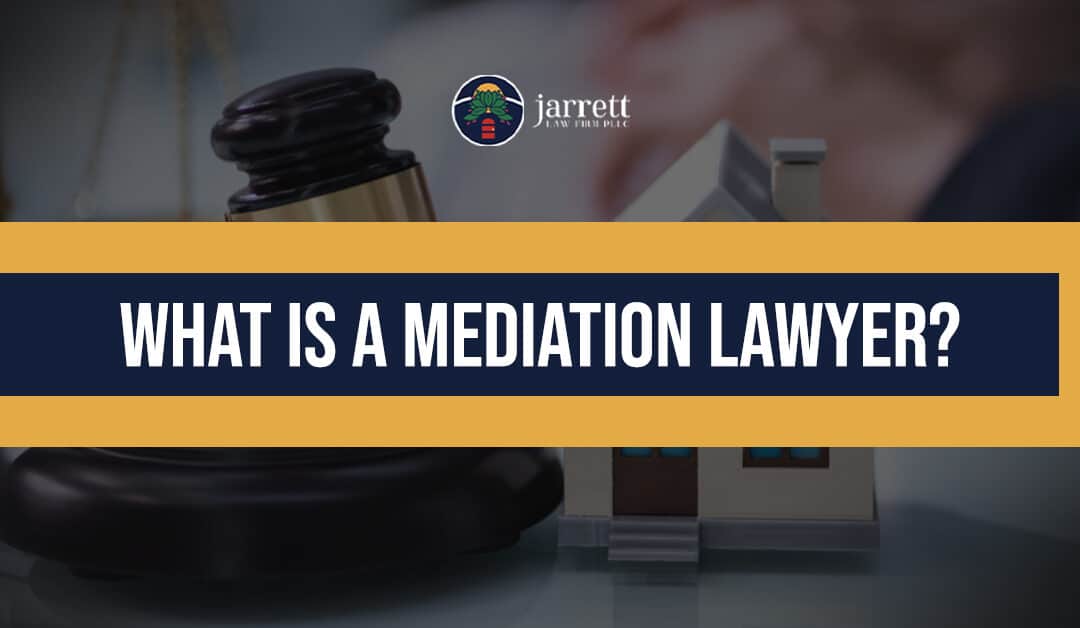An active dispute with others can affect your mental health. But a mediation lawyer can help everyone involved understand their legal rights. Mediators also help others better understand the issues and struggles in a disagreement. Mediation is a form of alternative dispute resolution that helps in a decision-making process. A mediation lawyer acts as a neutral third party to help everyone reach a mutually acceptable agreement. Because court fees and litigation can be expensive and lengthy, a case settled with the mediation process can benefit everyone involved.
Let’s look at exactly what mediation attorneys do in Texas. We’ll see how they help advocate, advise, and negotiate a conflict.
What is Court-Ordered Mediation? Is it Binding?
The mediation program in Texas allows courts to order parties to engage in mediation to resolve their disputes. Often, everyone reaches a settlement agreement during the mediation. The mediator then documents the settlement terms in a written settlement agreement. This agreement outlines the agreed-upon resolution and serves as a legally binding contract.
When parties participate in court-ordered mediation and successfully reach a settlement agreement, the terms of that agreement hold legal weight in Texas.
What Types of Disputes Benefit From a Mediation Process?
Mediation helps tremendously in real estate law.
A real estate attorney can help those struggling to find agreement in real estate issues such as the following:
- joint ownership disputes
- sibling inheritance of property
- partition lawsuits
- construction issues
- and more
Through negotiations with all involved, everyone can discuss their point of view while knowing that a neutral third party is there to mediate and help them work through the struggles until all the parties agree.
Many lawyers have training in the mediation process and the skills to act as a neutral mediator in almost any type of dispute.
What is the Difference Between Mediation and Arbitration?
Arbitration involves presenting your case to a neutral third party, known as the arbitrator. The arbitrator uses their judgment to make a decision based on the facts. This differs from mediation.
A mediator does not provide a decision for the parties involved in a dispute. Instead, they help parties come to an agreement on their own. They facilitate communication between parties to promote reconciliation, settlement, and understanding. Legally, a mediator cannot impose their own judgment on the issues.
How Does a Mediation Session Work?
In Texas, the mediation process operates according to the guidelines outlined in Texas Civil Practice and Remedies Code 154.023 and 154.053. Mediation sessions facilitate the resolution of disputes between parties.
During a mediation session, the parties involved follow the mediation rules in Texas. They work to reach an agreement that satisfies all parties involved. If parties successfully reach agreement, it’s placed in a written agreement, which serves as a legally binding record of the resolved dispute.
Example of a Mediation Process in a Joint Ownership Dispute
Suppose you and your siblings inherited property together. However, you find yourselves in a dispute over whether to sell or divide the land, homes, and barns. Mediation can offer a constructive platform for resolving your differences.
Here are some practical steps that can be expected during a mediation discussion in such a scenario:
Introduction and Ground Rules:
The mediation session begins with an introduction by the mediator. The introduction sets the tone and establishes ground rules for the discussion. This ensures everyone understands the principles of respectful communication and confidentiality.
Opening Statements (OS):
The real estate lawyer and the siblings, or their respective representatives, present their opening statements. They express their concerns, interests, and desired outcomes regarding the property division or sale. They may also outline the reasons behind their positions.
An example of an opening statement by your real estate attorney might go something like this:
“I am now going to make what mediators call an opening statement. My OS will tell you about your rights and entitlements, what to expect, and what will occur here to give you a heads-up as to what to anticipate in this mediation.
After I’m finished with my OS, I’d like to hear an uninterrupted OS from you. Please tell me what you think I need to know to bring me up to speed so I can be as effective as possible in helping you make the most of this mediation. (2)
According to Mediate.com, you or your attorney may make your opening statement. Your mediator will generally support your method of presentations and involvement in the meditation. Your opening statement should not involve interruptions from others. Instead, others should take notes if they have issues or questions while you speak. They may bring these to the forefront later. However, the mediator may stop you briefly during your OS to ensure their notes are correct.
Information Sharing:
The mediator facilitates a productive exchange of information. Each party can provide relevant documents, such as property deeds, financial records, or appraisal reports. This sharing of information ensures transparency and helps everyone better understand the statement’s implications.
Identifying Interests and Priorities:
The mediator guides the discussion toward identifying the underlying interests and priorities of each party involved. This step helps uncover the motivations and concerns behind their respective positions. For example, one sibling may be more interested in preserving the family heritage, while another may prioritize financial gains.
Exploring Options:
With a clear understanding of the parties’ interests, the mediator encourages brainstorming and explores various options for resolving the dispute. These options may include selling the entire property, dividing it into separate parcels, or finding a creative solution that addresses the interests of all parties involved.
Evaluating Options and Negotiation:
The mediator facilitates a constructive negotiation process, helping everyone evaluate the feasibility and desirability of the options. This phase may involve back-and-forth discussions. This is a time to consider the financial, emotional, and practical implications of each option.
Reaching Agreement:
If the parties achieve consensus, the mediator drafts a written agreement to reflect the resolution terms. The agreement may specify whether the property will be sold, divided, or managed jointly. It will also cover any additional conditions or considerations.
Finalizing the Agreement:
Once the parties reach an agreement, the real estate lawyer can review the proposed settlement terms. The review ensures legal compliance and protects the interests of the siblings. Once all parties are satisfied, they can sign the agreement, making it legally binding.
Mediation provides a platform for open communication, understanding, and collaborative decision-making. It enables the siblings to find a mutually acceptable resolution to their property dispute.
We Can Help
If you find yourself facing a legal real estate dispute requiring effective communication, negotiation, and a fair resolution, talk with us at Jarrett Law. Our mediation services can offer invaluable input and save you time and money. With our expertise in alternative dispute resolution, we can help you navigate complex legal matters and promote open dialogue. Our approach brings professionalism, empathy, and a commitment to finding a satisfactory resolution.
We can provide you with valuable insights, protect your rights and interests, and work toward a mutually beneficial outcome. Get in touch today and find out how we can help you get started reaching an agreement.

